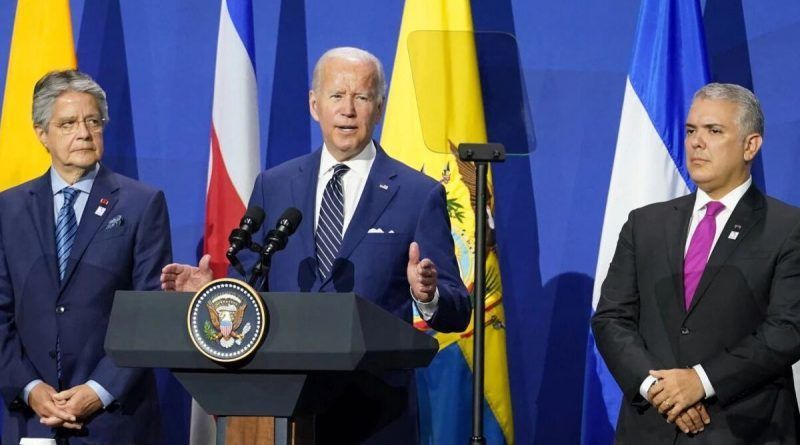Biden Presents Plan to Resolve Migration Crisis at Summit of the Americas
Biden Presents Plan to Resolve Migration Crisis at Summit of the Americas
Concluding the last day of the Summit of the Americas, Joe Biden presented a series of measures agreed upon by the Western Hemisphere and Spain. But analysts were skeptical and considered the program insufficiently weighty to make a significant difference.
The migration program was presented as the main document of the summit. Not all of the delegations of the forum countries joined the program, but only twenty.
The measures presented include commitments by the United States and Canada to hire more temporary foreign workers, allow people from poor countries in the region to work in rich countries, and suggest that other countries agree to stronger protections for immigrants. Mexico will also take in more workers from Central America, according to a White House statement.
“We are changing the way we manage migration in the Americas,” Biden said, “each of us signing up to commitments defined by challenges that affect us all.
Flags of 20 countries, slightly fewer than the number of summit participants, adorned the stage where Biden presented the program. But even that number of supporters was reached only after days of U.S. pressure. It was another sign of the tensions that marred the summit, undermining Biden’s efforts to restore U.S. leadership and counter China’s growing economic presence in the region. The adoption of the common document was also marred by a boycott by several leaders, among them the president of Mexico, who did not support the declaration in protest at Washington’s exclusion of U.S. “left-wing” opponents: Cuba, Venezuela and Nicaragua.
The presentation of the program was part of the unveiling of a U.S.-developed pact called the “Los Angeles Declaration,” aimed at redistributing responsibility throughout the region to contain migration. But at the summit’s opening on Thursday, the leaders of Argentina and tiny Belize rebuked Biden for who had been invited to the summit, stressing that the world superpower faces the challenge of regaining its status among its poorer neighbors.
On Friday, Chile, Bolivia, the Bahamas, St. Lucia, Barbados and Antigua and Barbuda joined the summit organizers in this criticism, in Biden’s absence. “No one should exclude another country,” Mexican Foreign Minister Marcelo Ebrard, filling in for President Andrés Manuel López Obrador, said from the podium.
Eric Olson, policy director of the Seattle International Foundation, called the declaration a “useful framework,” but added that it would likely have limited short-term effect because it is not binding. Jorge Castaneda, a former Mexican foreign minister, said the Summit of the Americas pledges should allow Washington to say it has made important commitments, which is a “political plus” for Biden at home. And he added: “There is essentially nothing in this document.”
Mexico, whose border with the U.S. is a major point of migration, supported the declaration despite Lopez Obrador’s no-show. The absence at the summit of leaders from Guatemala, Honduras and El Salvador, the “northern triangle” from which many migrants come, raised doubts about the effectiveness of the commitments. U.S. officials insisted that the turnout did not prevent Washington from getting results.
The declaration includes commitments from a number of countries, including Mexico, Canada, Costa Rica, Belize and Ecuador. But there was no mention of the commitments of Brazil, the most populous country in Latin America. There was no U.S. commitment to additional work visas for Mexicans in the program. That will be the topic of Lopez Obrador’s visit to Biden next month, the official said.
The White House said Spain has promised to help “double the number of employment avenues” for Hondurans. Madrid’s temporary work program covers 250 Hondurans, which suggests only a small increase.
